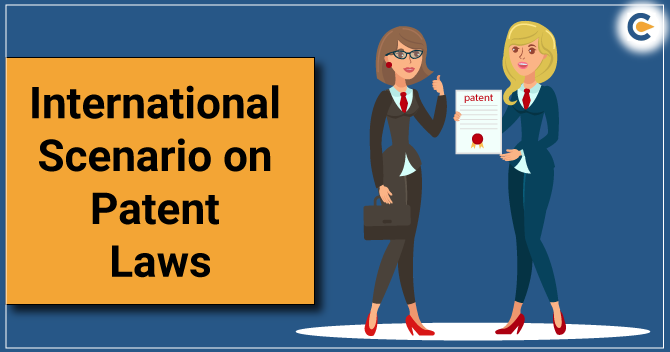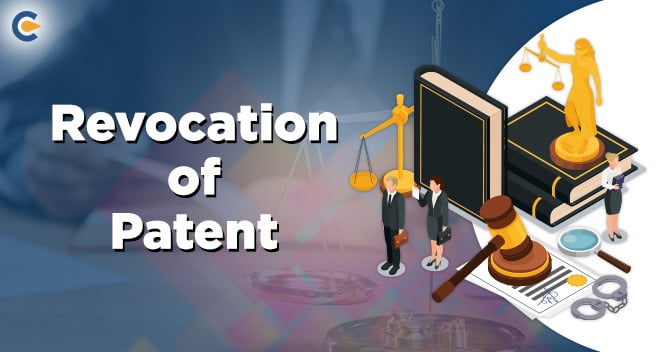A patent is a universally much-admired name for monopoly or exclusive right granted by the state in favour of an inventor in respect of any such invention. It excludes the rights of others for a limited duration to do certain acts in relation to an invention. Therefore, today’s international scenario on the patent has been increased and protects the patentee for the same.
How have Patents been protected under Indian Law?
The Patents Act governs the laws pertaining to Patent Registration in India, 1970, which has been amended twice by The ammended Patents Act, 1999 and The Patents (Amendment) Act, 2002. The new Patent Act, 2002, has been notified on June 25 2002. Presently, the limited sections have been made applicable vide Gazette Notification from the Government of India[1], dated May 20, 2003. However, it is being implemented in a phased manner, and it is a matter of time before the new Act will be applicable in its entirety. In the present scenario, the old Acts, i.e. The Patent Act, 1970 and The Patent Rules, 2003, are meant to be considerable except for the sections that are removed through the Gazette Notification.
The International Scenario on Patents
- The World Trade Organization (WTO) is a successor to the General Agreement on Tariffs and Trade (GATT) established after the Second World War. WTO is a governing body at the International level that covers Trade-Related Aspects of Intellectual Property Rights (TRIPs) and several allied agreements.
- World Trade Organization is known to grant flexibilities to the developing member countries in implementing the obligations under an agreement. WTO Intellectual Property Agreements prescribe rules for trade and investment in ideas and creativity. The rules state how Intellectual Property Rights (IPR’s) must be protected where trade is involved.
Trade-Related Aspects of Intellectual Property Rights Agreement (TRIPS)
- The TRIPs Council consists of members of the WTO that is responsible for the administration of the TRIPs Agreement, which emphasises on monitoring the operation of the agreement. The WIPO has agreed to cooperate under an agreement that helps the council implement the provisions under the TRIPs agreement.
World Intellectual Property Organisation (WIPO)
- The (WIPO) World Intellectual Property Organisation is another International Organization is dedicated to ensure that the rights of creators & owners of Intellectual Property are protected worldwide. Thus the inventor has been recognized and rewarded for their ingenuity. Presently, it administers 23 International Treaties dealing in different aspects of Intellectual Property protection.
- These Treaties and Agreements harmonize the national intellectual property legislation and procedures. It also provides services for international applications for industrial property rights, exchanges Intellectual Property information, provides all sorts of legal and technical aids to developing countries, and also facilitates the resolution of private Intellectual Property disputes.
Patent Cooperation Treaty
- Patent Cooperation Treaty is the treaty of the Paris Convention, which is administered by the (WIPO) World Intellectual Property. The Patent Cooperation Treaty facilitates filing of patent applications under a single umbrella and provides for a simplified procedure for search and examination of such applications.
- In consonence with the Paris Convention, an inventor gets a period of 12-months to file a patent application in other member countries after filing it in the home country. The period of grace is extended to 30-months under the PCT, where an inventor can file an “international patent application” in each and every PCT member of the countries within the specified period. In India, the grace period of 3o months is granted for such an “international patent application”.
Read our article:Patent in India: Registration and Filing Process
Filing procedure under the Patent Cooperation Treaty (PCT)


International Phase
India is one of the contracting states in the “PCT” any Indian applicant can file an international application in the universal standard format “Form PCT/RO/101” by any of the Indian Patent Offices such as Receiving Office, wich includes The Patent Office, Kolkata, and its branch Offices at New Delhi, Mumbai and Chennai along with the copy of Specification and Statutory Fees. Language of filing can be either in English or Hindi.
At a time of filing of an application, the applicant is also required to mention the number of countries wherein eventually registration of a patent is desired to be sought. It also has to specify the name of the International Search Authority and the International Preliminary Examination Authority.
The documents must be filed along with a PCT Application through an Indian Patent office are as follows:
- PCT Request (Form PCT/RO/101)
- The complete specification in three copies
- Power of Attorney
- Certified priority Document
On the receipt of an application, the patent office must prepare a certified copy of the important documents and transmit the same to the International Bureau and the International Search Authority with intimation to the applicant. After that, the international search is conducted, and the copy of the search report is also forwarded back to the applicant.
National Phase
Once the formalities under international phase have been duly complied, the applicant receives the Final International Preliminary Examination Report. After this, an application proceeds to the National Phase.
Filing of the National Phase Application in India requires the request for granting of a patent. It is made to the competent Receiving Office, i.e. The Patent Office, Kolkata, and its branch Offices at New Delhi, Mumbai, and Chennai in the prescribed Form 1A.
The documents must be submitted with the standardized application along with the necessary fees with the Patent office are as follows:
- Request (PCT/RO/101)
- Drawings
- P.A./G.P.A.
- The specification and drawing figures as published in the “PCT” Gazette
- International Search Report
- International Preliminary Examination Report
- Certified Copies of Priority Documents
- Particulars of amendments made to the specification and claims during the “PCT” International Phase;
- Verified English translation of amendments filed during an international phase.
- Such other information requires to be submitted as required by the patent office.
Conclusion
The patentee becomes the sole owner of an invention. This right is granted to a person who fulfils the prescribed conditions laid down by the government of a particular country. The patent granted protects the respective laws of the various countries in the world. Therefore, today’s International scenario on a patent is to protect the inventor in every way.
Read our article:Detailed Process of Patent Registration in India











